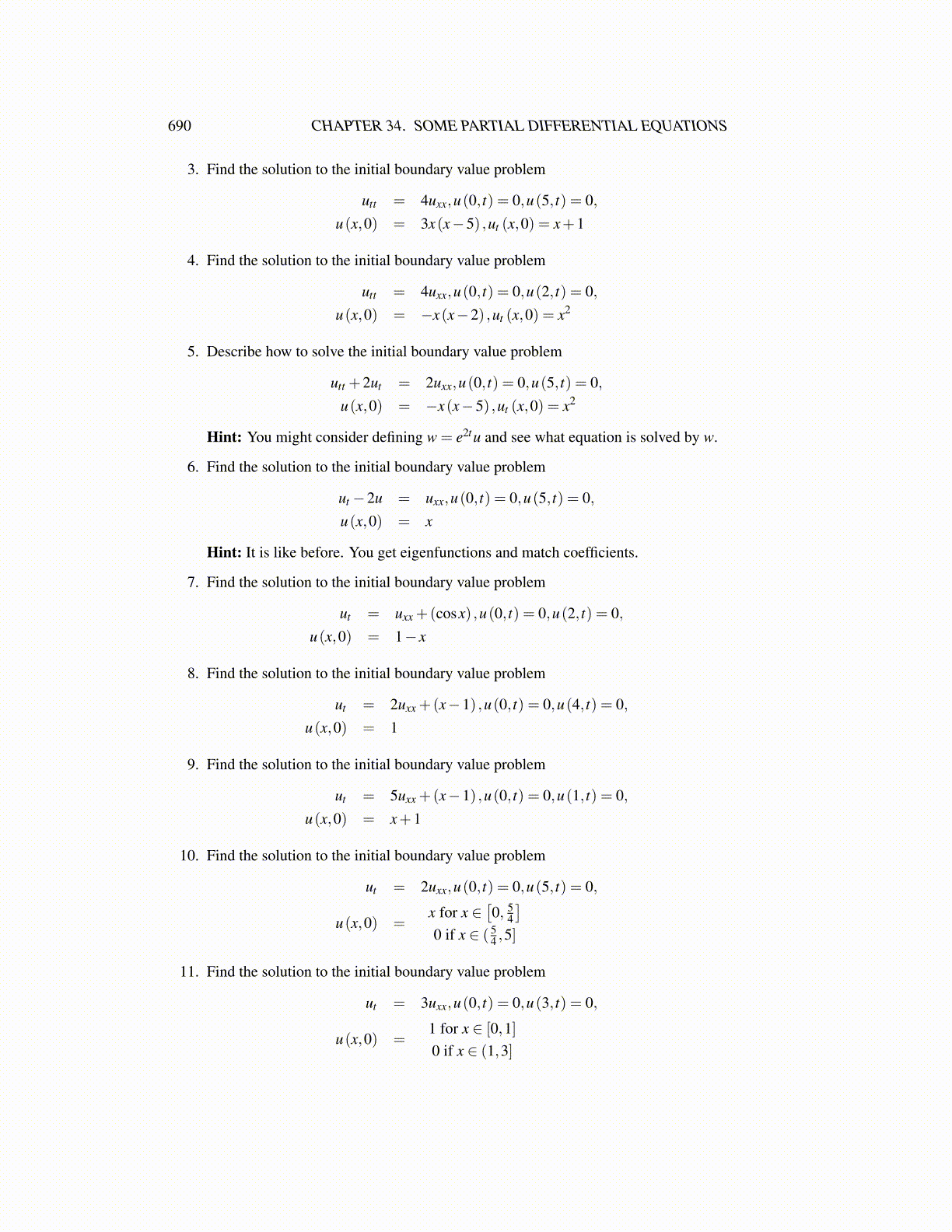
690 CHAPTER 34. SOME PARTIAL DIFFERENTIAL EQUATIONS
3. Find the solution to the initial boundary value problem
utt = 4uxx,u(0, t) = 0,u(5, t) = 0,u(x,0) = 3x(x−5) ,ut (x,0) = x+1
4. Find the solution to the initial boundary value problem
utt = 4uxx,u(0, t) = 0,u(2, t) = 0,u(x,0) = −x(x−2) ,ut (x,0) = x2
5. Describe how to solve the initial boundary value problem
utt +2ut = 2uxx,u(0, t) = 0,u(5, t) = 0,u(x,0) = −x(x−5) ,ut (x,0) = x2
Hint: You might consider defining w = e2tu and see what equation is solved by w.
6. Find the solution to the initial boundary value problem
ut −2u = uxx,u(0, t) = 0,u(5, t) = 0,u(x,0) = x
Hint: It is like before. You get eigenfunctions and match coefficients.
7. Find the solution to the initial boundary value problem
ut = uxx +(cosx) ,u(0, t) = 0,u(2, t) = 0,u(x,0) = 1− x
8. Find the solution to the initial boundary value problem
ut = 2uxx +(x−1) ,u(0, t) = 0,u(4, t) = 0,u(x,0) = 1
9. Find the solution to the initial boundary value problem
ut = 5uxx +(x−1) ,u(0, t) = 0,u(1, t) = 0,u(x,0) = x+1
10. Find the solution to the initial boundary value problem
ut = 2uxx,u(0, t) = 0,u(5, t) = 0,
u(x,0) =x for x ∈
[0, 5
4
]0 if x ∈ ( 5
4 ,5]
11. Find the solution to the initial boundary value problem
ut = 3uxx,u(0, t) = 0,u(3, t) = 0,
u(x,0) =1 for x ∈ [0,1]0 if x ∈ (1,3]